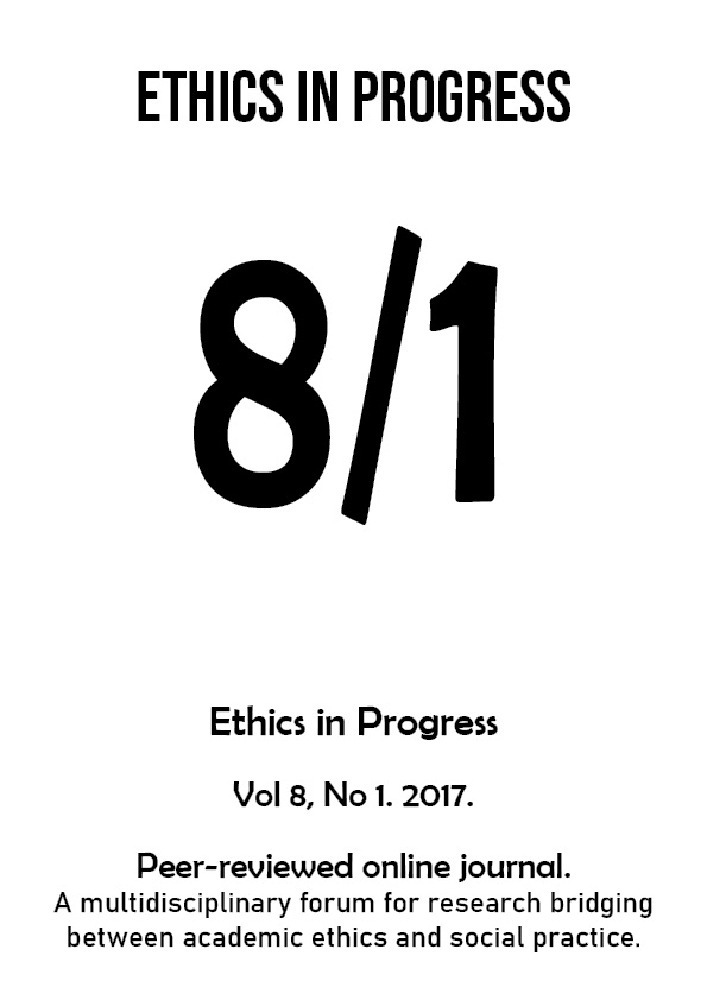Abstract
This paper is a review of Georg Lind’s latest book: How to Teach Morality. Promoting Deliberation and Discussion, Reducing Violence and Deceit (2016), and focuses on the main theme of the book – morality can be taught, the idea that is most encouraging for educators. Many researchers agree that our societies face many problems, such as violence, deceit, corruption, disrespect to the human nature, which on an individual level seem to stem from the lack of moral competence. Therefore, G. Lind’s book is timely, providing answers to those who are concerned about our future. It will be of interest and great value not only for the participants of CeSPeC Summer School of 2016, who were trying to attain the inspiration for an immediate present-day action to reshape our future for the better, but to all of us who are committed to the enhancement of human existence and especially educators, who are engaged in the development of moral competence of their learners. This review is an attempt to prove to the readers that. Lind’s book How to Teach Morality. Promoting Deliberation and Discussion, Reducing Violence and Deceit, is the right book to help our ailing societies to recover.
References
Brimi, H. 2009. Academic Instructors or Moral Guides? Moral Education in America and the Teacher’s Dilemma. Clearing House, 82 (3), 125–130.
Dolan, S. L. 2011. Coaching by Values: A Guide to Success in the Life of Business and the Business of Life. Bloomington: iUniverse.
Fenner, A. 2006. Intercultural Awareness As an Integral Part of Foreign Language Learning. Coherence of Principles, Cohesion of Competences. European Centre for Modern Languages: Council of Europe Publishing, 40–59.
Ferrero, D. J. 2011. What Students Need to Learn. The Humanities: Why Such a Hard Sell?. Educational Leadership, 68 (6), 22–26, available at http://www.ascd.org/publications/educationalleadership/mar11/vol68/num06/The-Humanities@-Why-Such-aHard-Sell%C2%A2.aspx [accessed on February 26, 2011].
Glanzer, P. L. 2012. The Missing Factor in Higher Education. Christianity Today, 56, (3), 18–23.
Hadley, A. 2010. Teaching Language in Context. Independence (KY): Heinle & Heinle.
Kotler, A. 2010. Education’s Important Role in Social Cohesion. Education Review, 22, (2), 46–54.
Kunzman, R. 2005. Dealing with Morally Controversial Issues in the Classroom. (Faculty Shark, 2005), http://www.facultyshack.com/article.php3?idnum=42 [accessed on February 20, 2010].
Maruggi, M. 2011. Debating Moral Education: Rethinking the Modern University. Teaching Theology & Religion, 14 (4), 390–392.
Thornberg, R. 2008. The Lack of Professional Knowledge in Values Education.
Teaching and Teacher Education: An International Journal of Research and Studies, 24 (7), 1791–8, http://dx.doi.org/10.1016/j.tate.2008.04.004.
Wicks, A. C., Freeman, R. E., Werhane, P. H. & Martin, & K. E. 2010. Business Ethics: A Managerial Approach. New Jersey: Pearson Education.
Wood, P. 2007. Homicides in Higher Education: Some Reflections on the Moral Mission of the University. Acad. Quest., 20, 277–294.
Wringe, C. 2005. Moral Education Beyond the Teaching of Right and Wrong. Dordrečht: Springer.




